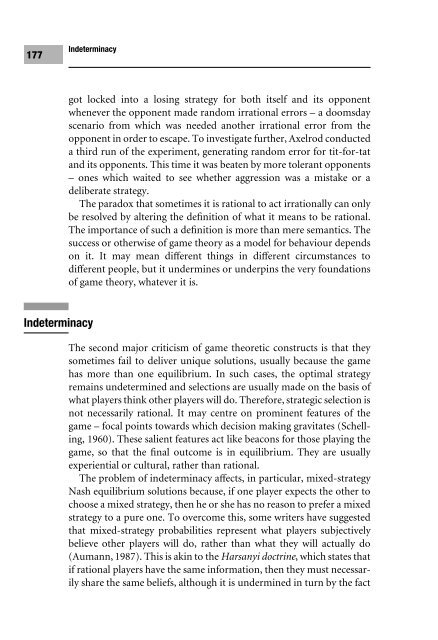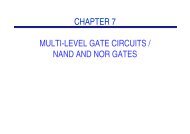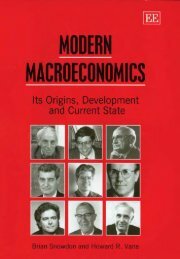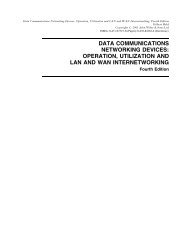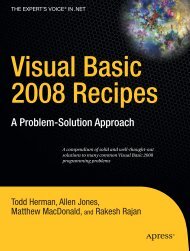Decision Making using Game Theory: An introduction for managers
Decision Making using Game Theory: An introduction for managers
Decision Making using Game Theory: An introduction for managers
- No tags were found...
Create successful ePaper yourself
Turn your PDF publications into a flip-book with our unique Google optimized e-Paper software.
177Indeterminacygot locked into a losing strategy <strong>for</strong> both itself and its opponentwhenever the opponent made random irrational errors – a doomsdayscenario from which was needed another irrational error from theopponent in order to escape. To investigate further, Axelrod conducteda third run of the experiment, generating random error <strong>for</strong> tit-<strong>for</strong>-tatand its opponents. This time it was beaten by more tolerant opponents– ones which waited to see whether aggression was a mistake or adeliberate strategy.The paradox that sometimes it is rational to act irrationally can onlybe resolved by altering the deWnition of what it means to be rational.The importance of such a deWnition is more than mere semantics. Thesuccess or otherwise of game theory as a model <strong>for</strong> behaviour dependson it. It may mean diVerent things in diVerent circumstances todiVerent people, but it undermines or underpins the very foundationsof game theory, whatever it is.IndeterminacyThe second major criticism of game theoretic constructs is that theysometimes fail to deliver unique solutions, usually because the gamehas more than one equilibrium. In such cases, the optimal strategyremains undetermined and selections are usually made on the basis ofwhat players think other players will do. There<strong>for</strong>e, strategic selection isnot necessarily rational. It may centre on prominent features of thegame – focal points towards which decision making gravitates (Schelling,1960). These salient features act like beacons <strong>for</strong> those playing thegame, so that the Wnal outcome is in equilibrium. They are usuallyexperiential or cultural, rather than rational.The problem of indeterminacy aVects, in particular, mixed-strategyNash equilibrium solutions because, if one player expects the other tochoose a mixed strategy, then he or she has no reason to prefer a mixedstrategy to a pure one. To overcome this, some writers have suggestedthat mixed-strategy probabilities represent what players subjectivelybelieve other players will do, rather than what they will actually do(Aumann, 1987). This is akin to the Harsanyi doctrine, which states thatif rational players have the same in<strong>for</strong>mation, then they must necessarilyshare the same beliefs, although it is undermined in turn by the fact


